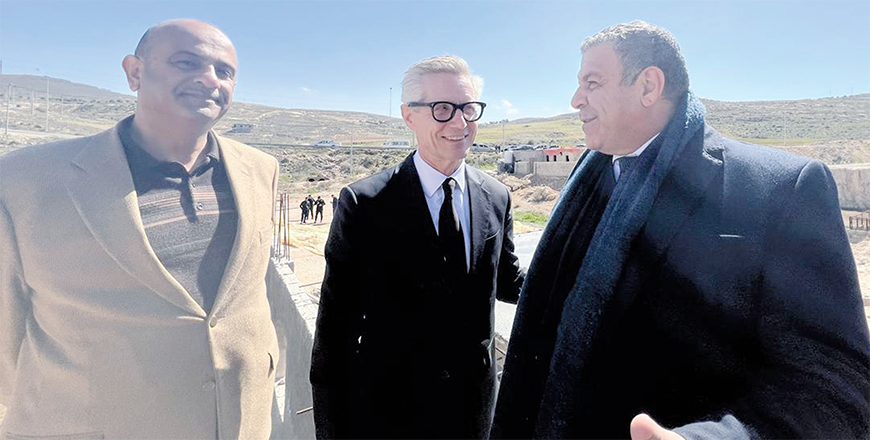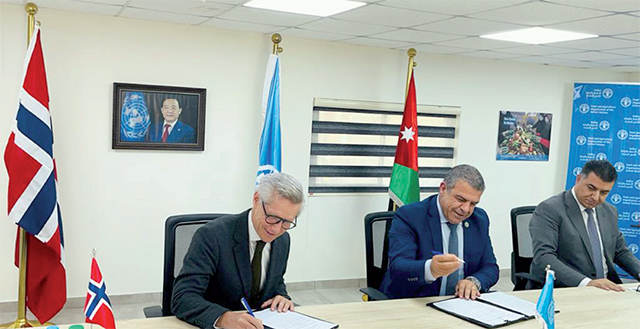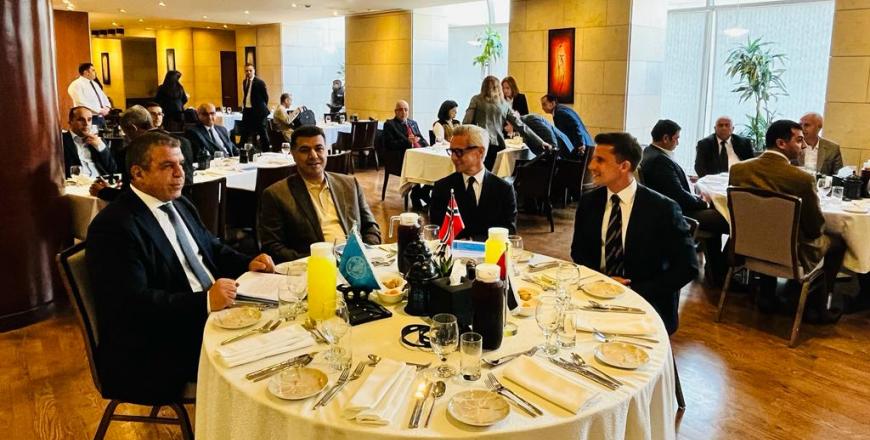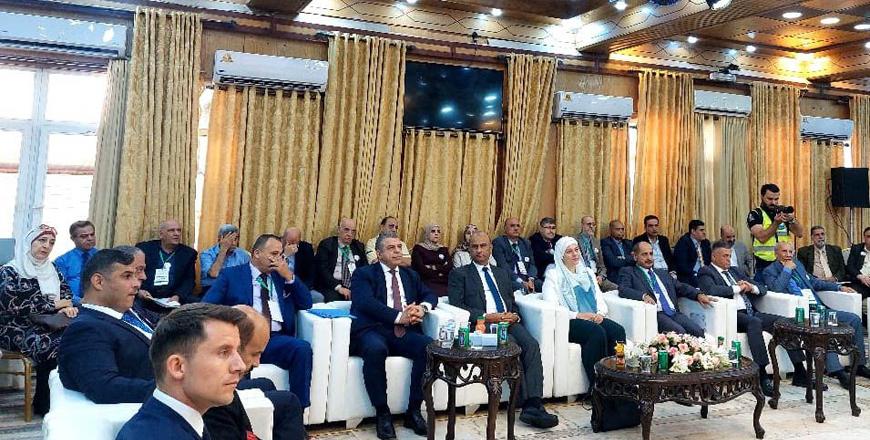You are here
FAO, Norway representatives visit locations of sustainability project in Tafilah
By JT - Feb 22,2024 - Last updated at Feb 22,2024

The Government of Norway and the Food and Agriculture Organisation of the United Nations, in cooperation with the Ministry of Agriculture, visit the implementing locations for the project ‘Transformation to more efficient, inclusive, resilient, and sustainable agrifood systems’ in Tafeilah governorate on Wednesday (Photo courtesy of FAO)
AMMAN — The Government of Norway and the Food and Agriculture Organisation of the United Nations (FAO), in cooperation with the Ministry of Agriculture (MoA), visited on Wednesday the implementing locations for the project “Transformation to more efficient, inclusive, resilient and sustainable agrifood systems” funded by the Royal Norwegian Embassy in Tafilah governorate.
The visit was conducted with participation of Mohammad Hiari, secretary-general for Agriculture Ministry, Espen Lindbæck, Norwegian ambassador to Jordan, Nabil Assaf, FAO representative in Jordan and attended by a group of selected stakeholders and beneficiaries, according to a FAO statement to The Jordan Times.
The aims of the visit were to check the progress of the project’s activities on the ground, meet the project’s beneficiaries and stakeholders and discuss the main challenges, solution, recommendations, and the possible ways to increase the project’s impact on beneficiary’s lives, the statement said.
Lindbæck highlighted, “Norway is committed to support our longstanding partner Jordan in their hospitality towards refugees. Therefore, I believe it is essential to support this project together with FAO which provides vulnerable Jordanians and refugees with the knowledge and skill set necessary for ensuring food security and self-reliance. Both Jordan and Norway are dedicated to strength sustainable agriculture and support individuals working in this field to reduce the impacts of climate change.”
The visit was conducted to one farm field school location and to two locations for farmers who benefitted from beneficiary’s grant for rain harvesting systems and small business activity, aiming to enhance the resilience of the target groups to poverty and hunger.
The secretary-general, on behalf of the minister of agriculture in Jordan, stressed the importance of this project, “water harvesting is the key to solve the problem of water shortage in Tafila Governorate”. He pointed out that “the interconnection and cooperation between the Hashemite Kingdom of Jordan and the Norwegian government is not limited only to political and economic matters, but also Principles and humanity regarding the Syrian crisis in Jordan”.
FAO Representative in Jordan, Nabil Assaf, said, “There is an urgent need to help the most vulnerable communities face the growing threat of water scarcity in the region Jordan is one of the most water-stressed countries in region and in the world, and climate change is further exacerbating its aridity.”
The project’s overall aim is to contribute to the sustainable achievement of food security among rural Syrian refugees and vulnerable Jordanian hosts, by enhancing their capacity to successfully participate in efficient sustainable agri-food systems and building their capacities for decent work opportunities as well as advocating for food waste reduction which has a profound effect on sustainbility, food security and rural development through training sessions. The project will address the capacity building, assets, financing, and employment needs of the targeted beneficiaries, through a series of activities related to capacity enhancement, asset distribution, access to micro-financing, access to markets, and job creation.
The selection of beneficiaries encouraged the inclusion of different community categories, including vulnerable ones; Syrian refugees, women-headed-houses, people with disabilities and elderly people who are still able to deliver the activities and respond to the objectives of the project. Overall, the project will target 300 beneficiaries through which 50 per cent will be women, of which 70 per cent will be Jordanians, and 30 per cent will be Syrian refugees in host communities and will create jobs for 300 workers.
Related Articles
AMMAN — The Ambassador of Norway to Jordan, Espen Lindbæck, and the Food and Agriculture Organisation of the United Nations (FAO) Representa
AMMAN – The Government of Norway and the Food and Agriculture Organisation of the United Nations (FAO), in cooperation with the Ministry of
AMMAN — The Jordan Agricultural Engineers Association in Irbid organised the third agricultural scientific conference, titled “The State of

















